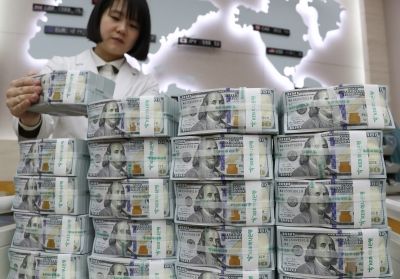
Seoul, January 21 South Korean stocks declined on Tuesday after new US President Donald Trump’s directive to his team to tackle worldwide unfair trade practices.
The benchmark Korea Composite Stock Price Index opened around 1 percent higher but then declined by 9.26 points, or 0.37 percent, to 2,510.79 as of 11:20 a.m., according to Yonhap news agency.
Following the inauguration ceremony, Trump announced his intention to impose tariffs of up to 25 percent on Mexico and Canada starting in February.
He pledged to reform electric car policies in his inaugural speech.
Subsequently, he executed instructions to reassess free trade agreements, presumably included the Korea-U.S. free trade agreement.
In Seoul, shares of battery and chemical companies saw declines.
Leading battery manufacturer LG Energy Solution declined by 5.4 percent, while POSCO Future M fell by 10.33 percent.
Leading oil refinery SK Innovation declined by 4.4 percent, while LG Chem fell by 5.35 percent.
Nevertheless, semiconductor manufacturers shown strength, with chip giant SK Hynix rising by 1.42 percent and Hanmi Semiconductor, a chip equipment manufacturer, increasing by 2.22 percent.
The local currency was valued at 1,439.35 won per U.S. dollar at 11:20 a.m., an increase of 11.25 won from the prior session.
Trade Minister Cheong In-kyo will engage in detailed discussions with his peers over responses to trade policies during the second Donald Trump administration at the World Economic Forum in Davos, Switzerland.
Cheong will attend the annual gathering of government and industry leaders themed “Collaboration for the Intelligent Age” from Wednesday to Friday (local time) to address pressing global concerns, as stated by the Ministry of Trade, Industry and Energy.
According to a statement from the ministry, around 350 government leaders, bureaucrats, and business executives are anticipated to participate in the five-day event that started on Monday.
Upon President Trump’s inauguration, the trade minister will convene with counterparts from nations who have similar worries on their trade ties with the United States to explore collaborative strategies.